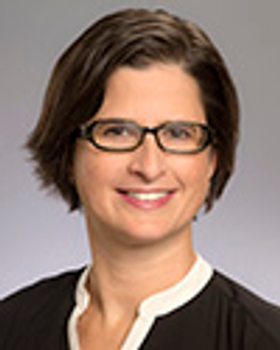Blood Clots Overview
Learn About Blood Clots
Blood clots are clumps that occur when blood hardens from a liquid to a solid.
- A blood clot that forms inside one of your veins or arteries is called a thrombus. A thrombus may also form in your heart.
- A thrombus that breaks loose and travels from one location in the body to another is called an embolus.
A thrombus or embolus can partly or completely block the flow of blood in a blood vessel.
- A blockage in an artery may prevent oxygen from reaching the tissues in that area. This is called ischemia. If ischemia is not treated promptly, it can lead to tissue damage or death.
- A blockage in the vein will often cause fluid buildup and swelling in the area where blood is drained by that vein.
Clot; Emboli; Thrombi; Thromboembolus; Hypercoagulable state
Situations in which a blood clot is more likely to form in veins include:
- Being on long-term bed rest
- Sitting for long periods, such as in a plane or car
- During and after pregnancy
- Taking birth control pills or estrogen hormones (especially in women who smoke)
- Long-term use of an intravenous catheter
- After surgery
Blood clots are also more likely to form after an injury. People with cancer, obesity, and liver or kidney disease are also prone to blood clots.
Smoking also increases the risk of forming blood clots.
Conditions that are passed down through families (inherited) may make you more likely to form abnormal blood clots. Inherited conditions that affect clotting are:
- Factor V Leiden mutation
- Prothrombin G20210A mutation
Other rare conditions, such as protein C, protein S, and antithrombin III deficiencies.
A blood clot may block an artery or vein in an organ, affecting the:
- Heart (angina or a heart attack)
- Intestines (mesenteric ischemia or mesenteric venous thrombosis)
- Kidneys (renal vein thrombosis)
- Leg or arm arteries
- Legs (deep vein thrombosis)
- Lungs (pulmonary embolism)
- Neck or brain (stroke)
Aurora Internal Medicine
Alok Srivastava is a primary care provider, practicing in Internal Medicine in Waterford, Wisconsin. Dr. Srivastava is rated as an Elite provider by MediFind in the treatment of Blood Clots. His top areas of expertise are Blood Clots, Hemophilia A, Beta Thalassemia, Kidney Transplant, and Liver Transplant.
Keiji Nogami practices in Kashihara-shi, Japan. Mr. Nogami is rated as an Elite expert by MediFind in the treatment of Blood Clots. His top areas of expertise are Blood Clots, Hemophilia A, Acquired Hemophilia, Synovectomy, and Adenoidectomy.
Emory Hemophilia Of Georgia
Christine Kempton is a Hematologist in Atlanta, Georgia. Dr. Kempton has been practicing medicine for over 29 years and is rated as an Elite provider by MediFind in the treatment of Blood Clots. Her top areas of expertise are Hemophilia A, Blood Clots, Hemophilia B, Von Willebrand Disease (VWD), and Bone Marrow Aspiration.
Summary: This is a phase 3, prospective, open-label, single-arm, single-dose, multicenter study investigating the efficacy, safety, and tolerability of CSL222 (AAV5-hFIXco-Padua) in adolescent male participants with severe or moderately severe hemophilia B.
Summary: The rationale for this study is to further understand and describe the long-term prophylactic effectiveness of efanesoctocog alfa in preventing joint bleeds in a real-life setting.
Published Date: June 17, 2024
Published By: Todd Gersten, MD, Hematology/Oncology, Florida Cancer Specialists & Research Institute, Wellington, FL. Review provided by VeriMed Healthcare Network. Also reviewed by David C. Dugdale, MD, Medical Director, Brenda Conaway, Editorial Director, and the A.D.A.M. Editorial team.
Anderson JA, Weitz JI. Hypercoagulable states. In: Hoffman R, Benz EJ, Silberstein LE, et al, eds. Hematology: Basic Principles and Practice. 8th ed. Philadelphia, PA: Elsevier; 2023:chap 138.
Cross SS. Ischaemia, infarction and shock . In: Cross SS, ed. Underwood's Pathology. 7th ed. Philadelphia, PA: Elsevier; 2019:chap 7.
Schafer AI. Approach to the patient with bleeding or thrombosis: hypercoagulable states. In: Goldman L, Cooney KA, eds. Goldman-Cecil Medicine. 27th ed. Philadelphia, PA: Elsevier; 2024:chap 157.


